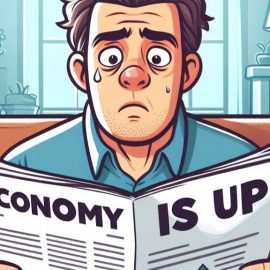

This article is an excerpt from the Shortform book guide to "The White Man's Burden" by William Easterly. Shortform has the world's best summaries and analyses of books you should be reading.
Like this article? Sign up for a free trial here .
Why can’t the countries in the West impose democracy and capitalism on developing nations? Is there another way to fix bad governments?
In his book The White Man’s Burden, economist William Easterly argues that the West needs to stop trying to fix bad governments. He says that imposing top-down aid is not what’s going to help struggling nations.
Here’s why Easterly thinks democracy and capitalism can’t be imposed.
Top-Down Government Changes
Easterly writes that what’s true for capitalism is also true for democracy. They are both good systems that, in the long run, lead to superior outcomes over their alternatives. But in poorly run countries, they cannot be imposed in the top-down manner favored by Western aid organizations. To put it another way, foreign aid is not going to change bad governance, nor will it be effective if given to bad governments to distribute.
Easterly argues that corrupt and authoritarian governments play a big role in causing and sustaining poverty, because their pattern of extortion, incompetence, graft, and selective enforcement of the law makes their countries politically risky places in which to invest or form businesses. In contrast, stronger democracy and political freedoms are positively correlated with significantly greater growth than found in authoritarian regimes.
Easterly argues that democracy actually works in a bottom-up rather than top-down fashion, because it favors local responsiveness to local demands. It creates a system of accountability for government officials: Good politicians who deliver for the public get rewarded through reelection, while bad ones who are unresponsive to the public get voted out.
Moreover, a liberal political system allows for a free press that can expose government wrongdoing while providing civil protections for dissidents and minorities.
| The Case Against Democracy Not all commentators agree that democracy is a good system of government, worthy of emulation. In Against Democracy, libertarian author Jason Brennan argues that democracy is an inherently flawed system that consistently leads to poor outcomes. The crux of Brennan’s argument is that the overwhelming majority of voters are too ignorant, self-interested, biased, and apathetic to make informed decisions. As a result, they tend to elect politicians who are reflections of themselves—ill-informed, narrow-minded, incompetent, and simply unintelligent. Brennan’s solution to this problem is to establish a system in which only the best-educated, rational, and most scientific-minded members of the population would have the right to vote. Specifically, he recommends selecting and screening potential voters the same way that members of trial juries are screened and weeded out for potential biases. |
Why Democracy Can’t Be Imposed
Despite its virtues, however, Easterly asserts that democracy is not a perfect system. Indeed, democracies can be fractured by ethnic, religious, or socioeconomic divisions, all of which can be exploited by politicians who pander to different groups’ resentments toward one another—and in the process, undermine the social fabric that is the cornerstone of a well-functioning system of self-government.
Easterly writes that democracies are quite fragile, vulnerable to sabotage and even destruction by unscrupulous actors within the political system. And because they’re inherently fragile, Easterly argues that it’s impossible to design a perfect democracy. Like a free-market system, a successful democracy depends on underlying social conditions and experiences. Those elements are deeply rooted in a country’s history and culture, which can’t be changed by even the most well-intentioned external democracy-promotion plans. Easterly explains that certain socioeconomic conditions tend to make poor soil for democracies to take root and grow—including wide income inequality, a traditional and patriarchal social structure, an entrenched landed elite, a history of sectarian conflicts, and rigid racial caste systems.
Outside agents, whether they’re the IMF, World Bank, or United Nations, cannot simply override these deep anti-democratic structural forces to impose a democracy.
| Norms and Democratic Survival As Easterly writes, it’s difficult to arbitrarily impose democracy in places where the social and cultural conditions are inhospitable to a free political system. But even in societies where there is a long history of democratic government and mass political participation, democracies can be vulnerable to sabotage and self-destruction. In How Democracies Die, Steven Levitsky and Daniel Ziblatt argue that political norms—the unwritten rules that govern political conduct—provide the best protection for democracy. In a well-functioning democracy, political actors adhere to shared norms governing what is and is not acceptable behavior, regardless of what might be technically permitted by the written rules. They write that democracies become fragile and vulnerable to collapse when political actors begin using their power to undermine or violate these norms. The two main democratic norms Levitsky and Ziblatt highlight are mutual toleration and institutional forbearance. The authors define mutual toleration as accepting the legitimacy of one’s political opponents and acknowledging their right to govern, as long as they win in free and fair elections—regardless of ideological differences. The second norm Levitsky and Ziblatt identify is institutional forbearance. This is the unwritten rule by which political actors agree not to weaponize their control of institutions to marginalize their opponents. For example, the majority party in the legislature might technically have the legal authority to uniformly and unequivocally block the judicial nominations of a president of the opposite party. But doing so would not only hamper the functioning of the judiciary, but be a violation of the norm of institutional forbearance. This could lead to a tit-for-tat cycle of retaliation—resulting in the ultimate destruction of democracy. |

———End of Preview———
Like what you just read? Read the rest of the world's best book summary and analysis of William Easterly's "The White Man's Burden" at Shortform .
Here's what you'll find in our full The White Man's Burden summary :
- How the global humanitarian aid system is fundamentally flawed
- Why bottom-up aid models work much better than top-down models
- Why the West can't change bad governments






